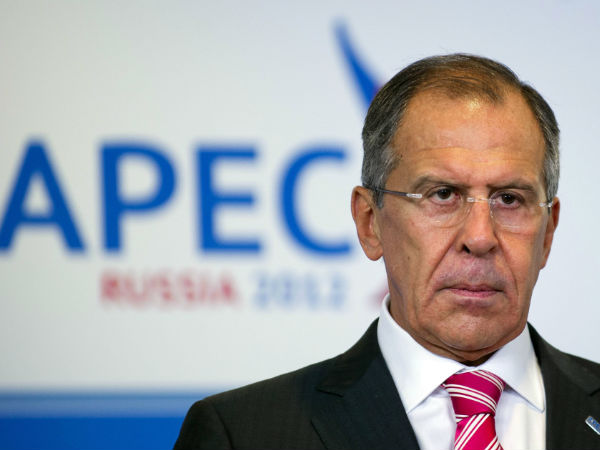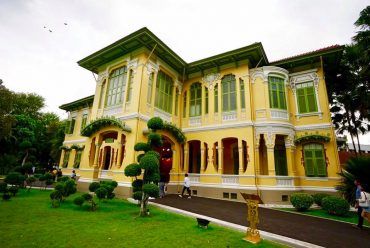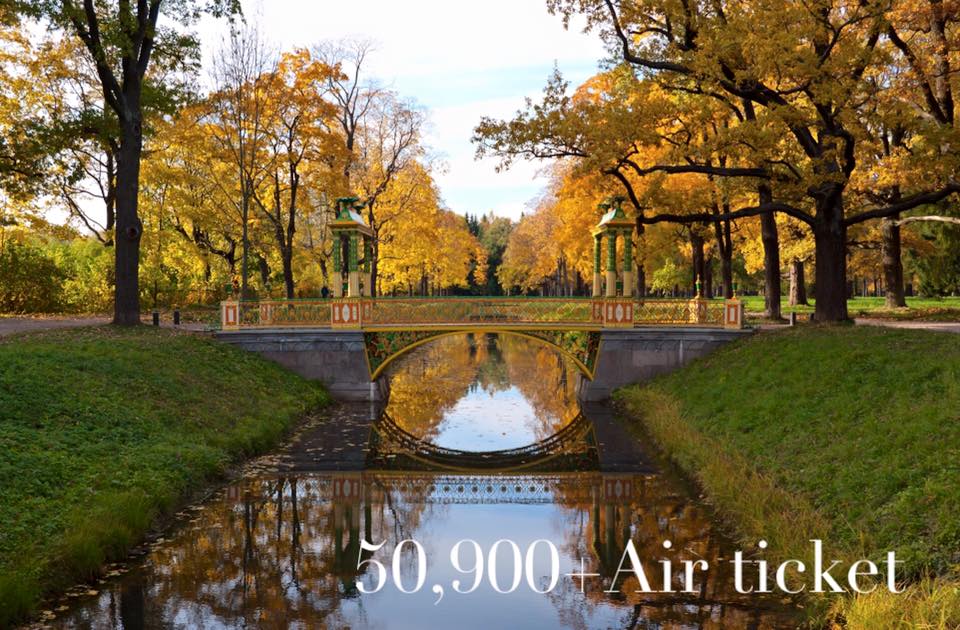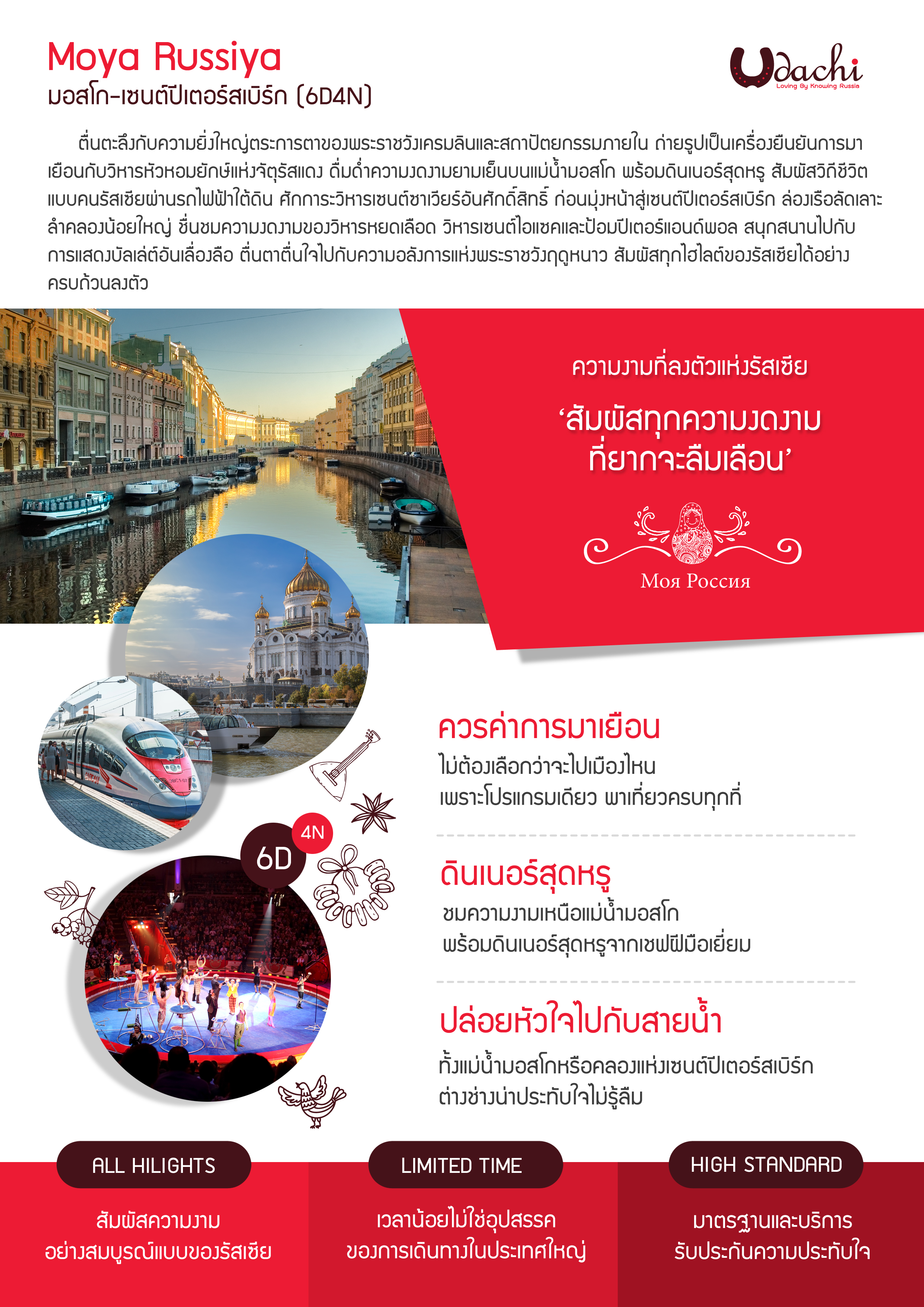บทความของ นาย Sergey Lavrov รัฐมนตรีว่าการกระทรวงการต่างประเทศรัสเซีย

บทความของ นาย Sergey Lavrov รัฐมนตรีว่าการกระทรวงการต่างประเทศรัสเซียชื้อ “หลักปรัชญาของนโยบายต่างประเทศรัสเซีย” (ภาษาอังกฤษ)
The President of Russia Vladimir Putin approved a new version of the Foreign Policy Concept of the Russian Federation on this 12 February. The line of work on the documents that lasted several months had been specified by the Order of the President signed on the day of swearing-in of the head of the state. The draft concept was coordinated with the agencies that are most actively participating in international activities, reviewed in different units of the Presidential Administration of Russia. The Russian expert community, including members of the Research Council at the Foreign Minister, were involved in its preparation. We are thankful to all those who have expressed their considerations and propositions, including on pages of the “International Affairs”. The main result of these discussions is understanding that a modern and independent foreign policy course of our country has, in fact, no alternatives. In other words, we cannot even hypothetically consider the version of “tying off” Russia as a driven state to any other key player on the international arena.
The independence of Russian foreign policy is conditioned by its geographical sizes, unique geopolitical position, centuries-old historical tradition, culture and self-consciousness of our people. This course is also the result of the last 20 years of development of our country in its new historical conditions of the period, when, sometimes by trial and error, we managed to formulate the philosophy of foreign policy mostly complying with interests of Russia on this modern stage.
บทความของ นาย Sergey Lavrov รัฐมนตรีว่าการกระทรวงการต่างประเทศรัสเซีย June 27, 2013 Posted by admin sergey_lavrov บทความของ นาย Sergey Lavrov รัฐมนตรีว่าการกระทรวงการต่างประเทศรัสเซียชื้อ “หลักปรัชญาของนโยบายต่างประเทศรัสเซีย” (ภาษาอังกฤษ)
The President of Russia Vladimir Putin approved a new version of the Foreign Policy Concept of the Russian Federation on this 12 February. The line of work on the documents that lasted several months had been specified by the Order of the President signed on the day of swearing-in of the head of the state. The draft concept was coordinated with the agencies that are most actively participating in international activities, reviewed in different units of the Presidential Administration of Russia. The Russian expert community, including members of the Research Council at the Foreign Minister, were involved in its preparation. We are thankful to all those who have expressed their considerations and propositions, including on pages of the “International Affairs”.
The main result of these discussions is understanding that a modern and independent foreign policy course of our country has, in fact, no alternatives. In other words, we cannot even hypothetically consider the version of “tying off” Russia as a driven state to any other key player on the international arena.
The independence of Russian foreign policy is conditioned by its geographical sizes, unique geopolitical position, centuries-old historical tradition, culture and self-consciousness of our people. This course is also the result of the last 20 years of development of our country in its new historical conditions of the period, when, sometimes by trial and error, we managed to formulate the philosophy of foreign policy mostly complying with interests of Russia on this modern stage.
The updated Concept preserved its key principles not only from the previous version of 2008, but also the basic approaches of the document approved by Vladimir Putin in 2000. First of all, these are pragmatism, openness, multi-vector nature, consequent, but confrontation-free advancement of Russian national interests. These principles have proved their relevance and efficiency. Moreover, they are increasingly acquiring a universal nature, put into service in practical policy by constantly increasing the number of states.
The main task of the international activity of Russia is to create favourable external conditions for the rise of its economy, its transfer to innovative rails, increasing living standards of people. There will be no exaggeration, if we say that such presentation of a problem is not only a result of the analysis of the current condition of the state, but is also absolutely natural for Russia from a historical perspective. To that end, I would like to quote the multi-addressed message to Russian representatives at courts of foreign powers sent on 4 March 1881 due to the accession to the throne of the Emperor Alexander III. It stated that Russia “has reached its natural development, it has nothing to wish, nothing to seek out from others. It has just to consolidate its position, protect itself from outer threats and to develop internal powers, both spiritual and material, accumulating reserves of means and multiplying its welfare”. This approach was confirmed by Alexander III in 1893, when he wrote that “a peaceful development of Russian powers must become an exclusive subject of public charges and to serve as a preferential motive for a peaceful policy”.
In the past century, wars, revolutions, bipolar confrontations did not allow our country to fully concentrate on the implementation of a creative agenda. In the modern period, when Russia is at enemy with nobody, has its feet on the ground and is steadily implementing its development plans, new opportunities open up for this.
It is evident, that the goal of ensuring incremental building of country’s capacity is achievable only in conditions of international stability; therefore securing universal peace and security for Russia is at the same time a liability of a global player, permanent member of the UN Security Council and a key issue of the implementation of its own interests. To that end, we have to listen to reproaches that our foreign policy is conservative, that we are striving to take an obviously losing position of defence of inevitably changing status quo. This is an evident misrepresentation of the Russian foreign policy doctrine.
Yes, we indeed do not support attempts of redrawing the geopolitical situation in different regions of the world by using revolutionary slogans, including those related to a hasted advancement of democratic processes. There are many causes of that. We all know too well in Russia the destructive power of violent upheavals that do not lead to the implementation of the initially announced goals and frequently hurl back the societies concerned decades back in their development. In fact, no cases of external coercive intervention in the past 15 years have brought to the searched results, but rather have contributed to the accumulation of additional problems and the aggravation of sufferings of the civil population under a slogan of defence of which these intervention decisions were initially made. And, finally, the increase in the number of foci of instability as a result of acts and operations of violence targeted to changing regimes leads to a dangerous expansion of zones of turbulence in international relations enhances elements of chaos in them. But this is a direct way to losing control of global processes that would make a painful hit on members of the global community, including the initiators of the external intervention.
At the same time, nothing is farther from the truth than the affirmation that Russia is trying to freeze status quo. We presume that the world is on a zig, entered the epoch of deep changes, the result of which almost cannot be predicted. This is related to new risks, and new opportunities, and sometimes allows to turn over a fresh leaf. Have freed from ideological blinders of the past, we, most probably, understand better that others – those who by inertia or deliberately head in the tideway of the ideology not compatible any more with the realities of the XXI century. If we look at international events open-mindedly, it turns out that it is not Russia who is promoting archaic blocking approaches in international affairs, making unpromising attempts to build oases of peace and security fenced off from others, protect protectionism in the military and political field to the detriment of the confirmation of principles of equal and undivided safety.
Tectonic shears in the geopolitical landscape related to the reallocation of forces on the international arena require maximally serious evaluation – from positions of intellectual honesty, without wishful thinking. Russian government repeatedly highlighted that Moscow is not satisfied or malevolent with the process of reduction of the opportunities of the historical West to play a key role in the global economy and policy. But it is an objective reality that we need to take into account. The global community faces large-scale, strategic issues, including those related to the clearly marked delimiters of the economic system based on unrestrained pursuit of profits without appropriate state or society control, acknowledgment of the multiplicity of development models in the modern world, the need to search for sources of development entering the new technological mode.
The disturbances that have overtaken the region of the Middle East and North Africa are of a special concern. We need to objectively evaluate them as well, in all their complexity and multiformity, avoiding primitive black and white clichés. It is evident that these processes will last for many years and, most probably, will be interconnected with a painful transformation that has settled in the last period of the geopolitical picture of this region.
The evidences of the increase of the value of the factor of civilization identity in modern conditions, the intensification of the trend the formation of some kind of civilization blocks are multiplying. In this situation, the choice is evident: it is either aggravation of intercultural, inter-civilization frictions with prospects of their escalation into an open collisions, or deepening of a dialogue based on mutual respect and equality for the purposes of advancement to the partnership of civilizations. Shortly before his resignation, Benedict XVI told that today the achievement of peace through a dialogue is not one of possible options, but rather an option-free need. Such position is concordant with Russian approaches.
The foreign policy Concept formulates a clear, consecutive system of views oriented to the solution of ever complicating problems of the modern world. There are no hints to isolationism, self-restraint from participation in solving equations with many unknown variables that the global policy is full of. It is quite the reverse, we are fully charged for the activation of attempts in favour of the organization of collective actions of the international community to find answers to the challenges we all face. We are convinced that the most secure means to prevent a transfer of the global competition to the form of confrontation of powers is to constantly work in the interests of ensuring collective leadership of the leading countries of the world that must be representative in terms of geography and civilizations. However, to ensure success of such work we need to acknowledge general rules of the game, basing on the supremacy of law not only in domestic, but also in international affairs. Do you think that it is logical when the same states that are committed to a pushing and even power-based promotion of democratic principles in other countries evade recognizing them on the international arena?
Russia’s foreign policy is constructive and creative. The activity of the Russian diplomacy is directed to making a positive influence on global processes in the interests of formation of a stable, – ideally self-regulating – polycentric system of international relations, in which Russia rightfully plays a role of one of three key centres. The majority of serious experts and politicians today agree that the main content of the modern period of global development is to consequently consolidate multi-polarity.
We are ready to a serious universal dialogue with all interested parties at the same time understanding that nobody can pretend to keep a monopoly for the truth. It is evident that a long-term, truthfully partner interaction must be built on the foundation of general values. However, such approaches cannot be dictated by anybody. The attempts from the West to distribute their own scale of values with insistence of messiahs remind us of the words of Oswald Spengler: “All of these are episodic and local values, in most cases conditioned by this moment’s mental interests of inhabitants of cities of the West European type rather than general historical lasting values”. A truthfully moral ground for international relations must be a product of an equal dialog and be based on a common spiritual and moral denominator that has always existed in main religions of the world. A refusal from traditional values reaped for millennia, separation from own cultural and spiritual roots, absolutization of individual rights and liberties is a recipe of losing any landmarks both in the domestic and foreign policy.
Russia is a dedicated follower of the method of network diplomacy envisaging the creation of flexible, including mutually intersecting unions of countries in accordance with their modern interests. One of the most successful examples of formation of this kind of unions with participation of the states located on different continents is BRICS. Our country, that is presiding in the Group of Twenty, the Group of Eight, SCO, BRICS in 2013-2015, is heading its energetic line to increase the effectiveness of the input of multilateral formats in the consolidation of the global management. This is one of practical manifestation of the multi-vector nature of the foreign policy course of Russia. I do not think that it would be justifiable to attempt building up any rigid, formalized hierarchy of links with our partners in different geographical directions. Flexibility, manoeuvrability, “polyphony” of Russia’s foreign policy is our evident benefit, this allows us to take into account the turnover, changeable nature of the international situation.
We presume that our participation in cooperation with partners in the development of deep all-around cooperation in the space of CIS, consecutive promotion of the Eurasian integration project is a big contribution to the creation of a new international architecture, where regional integration unions are building blocks. From this point of view, we see that it is absurd to attempt protecting “own” integration at the same time confronting neighbours’ integration processes. Especially, when there are generally accepted grounds for integration efforts, primarily, WTO norms, in the modern world. The rapprochement of integration projects, their combination into a ring is a way that may ensure stable development on a global scale. This is a presumption of Russia, when it offers to orient as a strategic goal to the creation of a common economic and humanitarian space from the Atlantic Ocean to the Pacific Ocean, heading to an active integration of our country into integration processes in the Asia-Pacific region.
According to its tradition, Russia continues to play a role of a balancing factor in international affairs, the need for which is confirmed by the majority of our partners. It is explained not only by the international weight of the country, but also because we have our own opinion about the events that are going on, based on the principles of law and justice. A growing attractiveness of Russia is also related to the extension of the capacity of its “soft power” as a country combining the richest cultural, spiritual heritage with unique opportunities of dynamic development, developing a productive interaction with the multi-million Russian world.
We are convinced in Moscow that there are more common things than disagreements in the views of the leading international players to the most acute problems of the modern world, especially in what concerns not tactical but rather final goals. Because today everybody is interested in the reduction of zones of international and country-specific conflicts, in the solution of problems of non-distribution of weapons of mass destruction and means of its delivery, in the limitation of opportunities for terrorist and extremist groupings. Therefore, we must in deed and not in name to overcome individual or group egoism and to become aware of the our general responsibility for fates of the human civilization. We regularly receive warning about its fragility in the form of large-scale natural and man-made disasters, including a recent cosmic “intervention” near Chelyabinsk, that might have had immeasurably more severe consequences, if it happened in another, more populated area.
We welcome a lately outlined movement to the convergence of approaches of the most powerful states, first of all members of the UN Security Council, in the interests of combining efforts to resolve the conflicts we have in different regions in a political way, basing on the international law. It is also justified in what concerns the understanding of the option-free settlement of the Syrian crisis through negotiations.
The updated Concept explicitly, multilaterally formulates foreign policy views of the Russian government on the modern stage of the global development that are based on the aspiration to the maximum use of country’s possibilities through fruitful international cooperation, collective settlement of crisis situations, consolidation of a positive, uniting agenda in the global policy We expect for an adequate, constructive reaction of our partners.
ขอขอบคุณที่มาจาก : http://www.thailand.mid.ru/Win_work/Prez_Reliz2010/PR_02042013_th.htm






No Comments